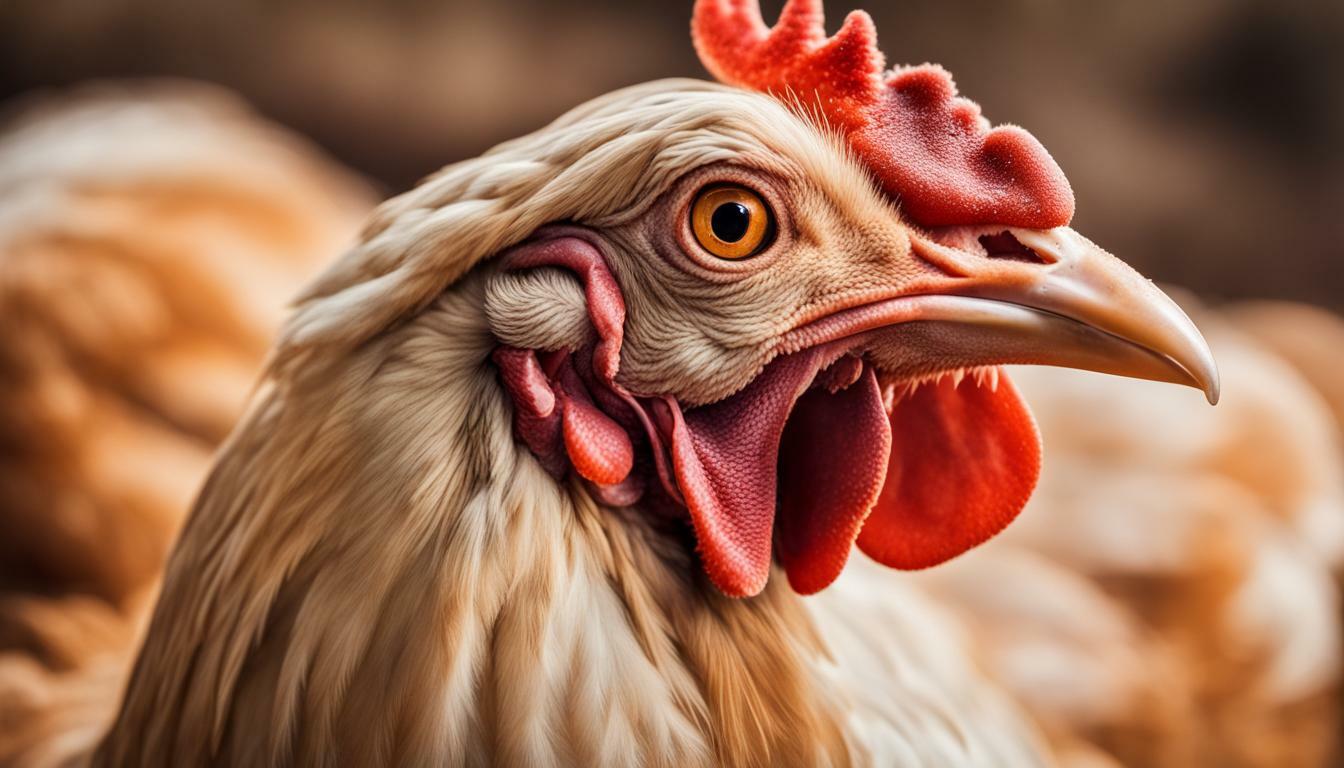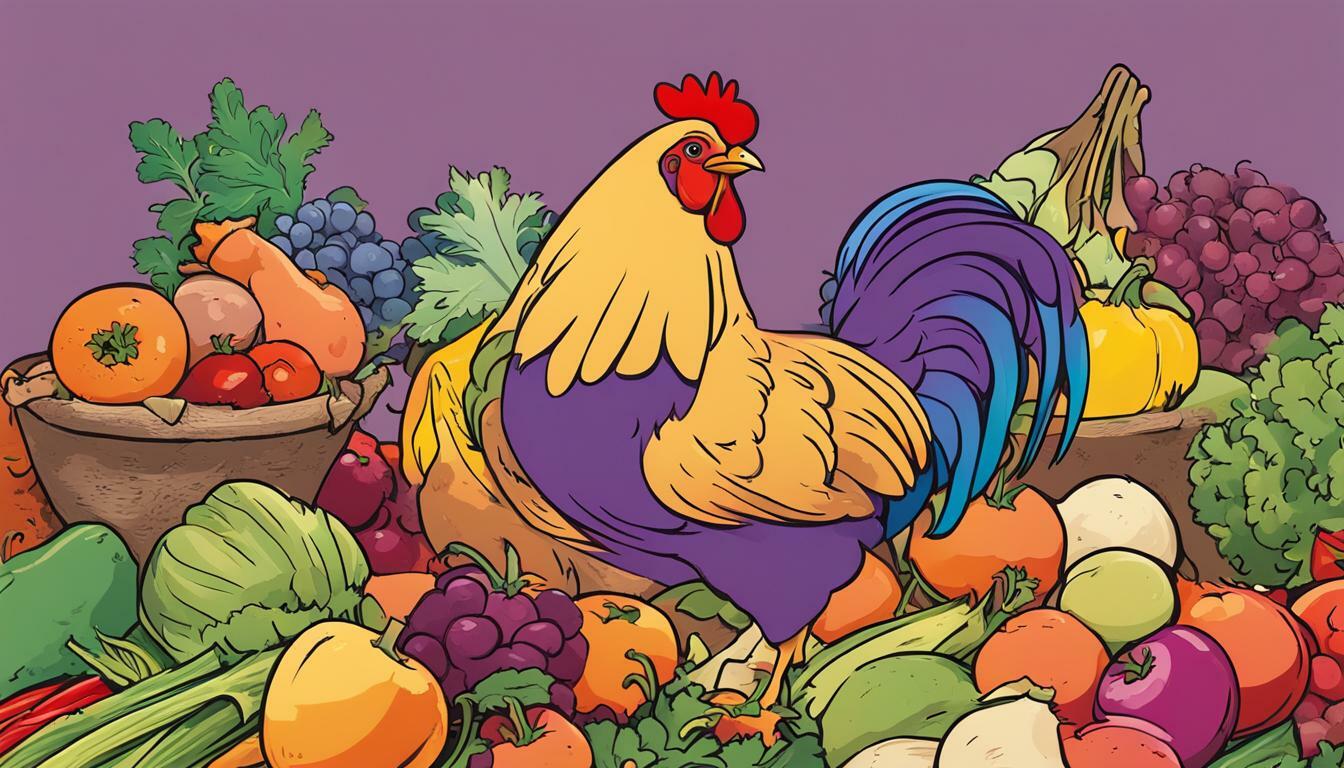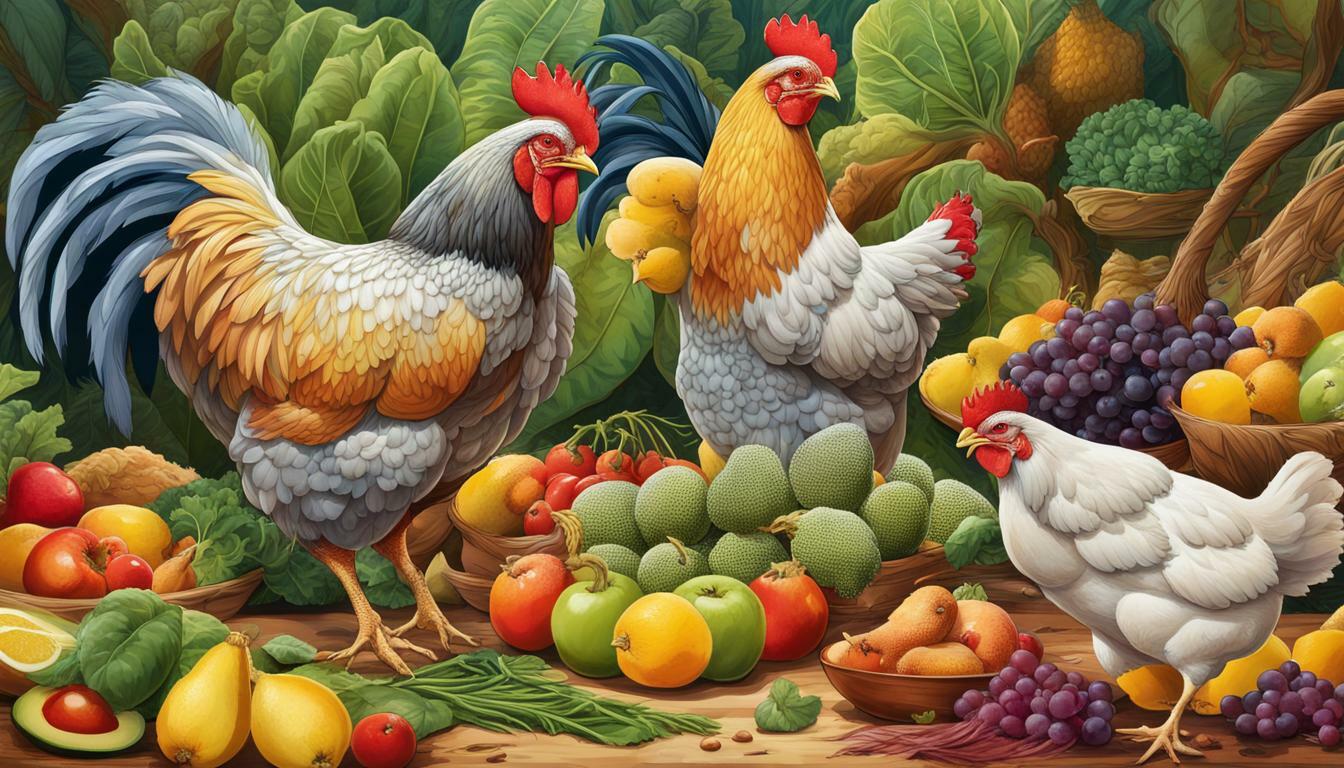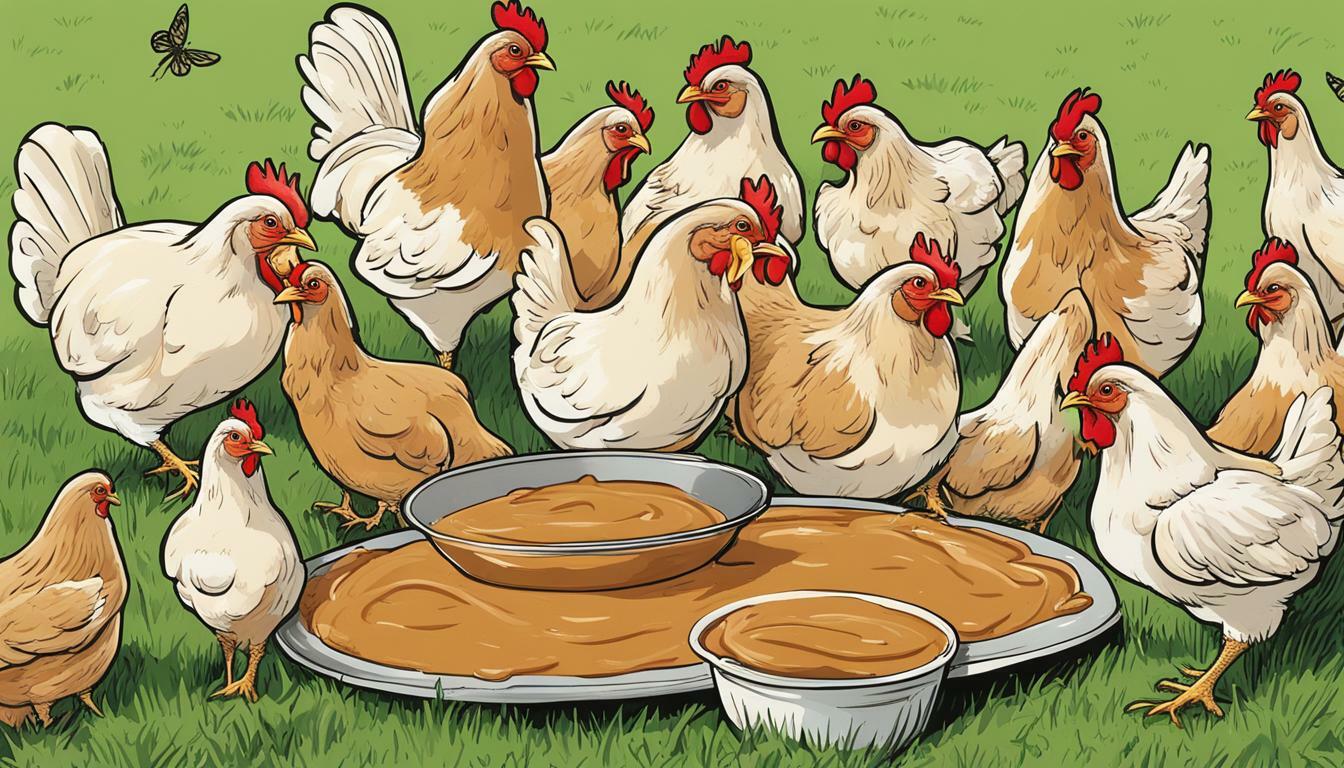Why Do Chickens Open Their Mouths? Unraveling the Mystery

Table of content:
- Normal Chicken Breathing
- Panting as a Cooling Mechanism
- Triggers for Heat Stress
- Is Open-Mouth Breathing Normal?
- How Long Do Chickens Pant?
- Tips to Prevent Heat Stress in Chickens
- Concerns about Excessive Gaping
- Diseases That May Cause Excessive Gaping
- Non-disease Causes of Heavy Panting
- When to See the Vet for Panting Issues
- Monitoring for Improvements
- Final Thoughts
Chickens are one of the most common domesticated animals raised for food and eggs. As backyard chicken keeping grows in popularity, more people are noticing some of the unique behaviors and mannerisms of chickens. One behavior that often causes concern in chicken owners is seeing chickens standing with their mouths wide open, appearing to gap or pant. This seemingly strange behavior has a perfectly logical explanation that helps the bird cope with heat stress.
Normal Chicken Breathing
To understand why chickens open their mouths, it helps to first look at how chickens normally breathe. Like all birds, chickens have a respiratory system that is vastly different from mammals. When at rest, chickens breathe using air sacs that are connected to their lungs. The air flows in a one-way loop through the lungs upon inhalation and exhalation.
This efficient respiratory system allows the chicken to take in oxygen while exhaling carbon dioxide simultaneously. Chickens do not have a diaphragm like mammals, so their breathing relies on air sac movements instead. At normal temperatures, the chicken’s breathing is regular and involves small movements of the air sacs.
Panting as a Cooling Mechanism
When a chicken gets overheated, its first response is to open its mouth and start panting. The panting behavior serves an important thermoregulatory function for the chicken’s body. By gaping its mouth wide open, the chicken can facilitate rapid air movement over the moist surfaces within its mouth and throat.
As this happens, the moisture evaporates, pulling heat away from the chicken’s body. This evaporation has a cooling effect, much like sweating in mammals. Panting allows evaporative cooling to happen without the chicken expending energy on fast breathing using its air sacs. The mouth gaping allows more air to move over the moist surfaces with less effort.
Triggers for Heat Stress
There are several situations that can cause a chicken to feel overheated and lead it to start gaping its mouth to cool down:
- Hot ambient temperatures – Chickens will pant on very hot days, especially when temperatures exceed 85°F. The hotter it gets, the more the chicken will need to pant to maintain a normal body temperature.
- Direct sunlight – Direct sun exposure can cause chickens to feel hotter and overheat more readily, even if the air temperature is not excessively high. The radiant heat from the sun can trigger mouth gaping.
- Lack of shade – Chickens that do not have access to shaded areas in very sunny conditions are likely to feel overheated and pant. Shade provides relief for chickens.
- Lack of air circulation – Stagnant air with no breeze can cause heat to build up in a chicken coop or run. Chicken’s will pant to increase air movement.
- High humidity – Humid conditions impair evaporative cooling. Chickens will open their mouths more when it’s both hot and humid to compensate.
- Molting – Chickens are prone to overheating when they lose their feathers during the annual molt. Missing plumage reduces their insulation.
- Stress – Chickens may pant when stressed or frightened as a nervous reaction, even if temperatures are normal. Stress can accelerate overheating.
Is Open-Mouth Breathing Normal?
Seeing a chicken standing with its mouth open can look odd, but it is completely normal chicken behavior when the bird is hot. Owners do not need to be alarmed or worried when chickens are gaping their mouths to cool down on a hot day. This is evidence that the chicken is using appropriate mechanisms to prevent overheating.
Panting allows the respiratory system to maximize evaporative cooling without expending unnecessary energy. The moist surfaces in a chicken’s mouth and throat are very efficient for heat transfer. The faster air movement facilitates the cooling process.
As long as the chicken returns to normal breathing once cooled down, the panting is simply a response to heat exposure and not a cause for concern. It is a sign that the chicken is doing what it needs to maintain homeostasis.
How Long Do Chickens Pant?
Chickens may pant for brief periods or for extended lengths of time depending on how hot they are and whether conditions improve. Once the chicken’s body temperature is back in the normal range, panting will stop. Here are some examples:
- On a mildly hot day, panting may occur for just a few minutes as the chicken moves into a shady area.
- In intense heat without relief, a chicken may pant for hours throughout the day, stopping only when temperatures cool in the evening.
- If a heat wave persists for days on end, chickens may pant daily during the hottest hours.
- During a stressful event like an attack by a predator, chickens may pant heavily for 10-15 minutes afterward as part of the nervous reaction, even if the temperature is fine.
In general, chickens can pant for as long as necessary until overheating subsides. If panting continues unabated for multiple hours without pause, it could signal a problem.
Tips to Prevent Heat Stress in Chickens
While panting is normal, owners should still take steps to minimize situations that could cause heat stress and heavy mouth breathing in the flock. Some ways to help prevent overheating include:
- Providing adequate shade in the run – Areas out of direct sun allow chickens to cool.
- Supplying clean drinking water – Chickens need to stay hydrated.
- Installing fans for ventilation – Air circulation is key.
- Free access to dust baths – Dust bathing aids their cooling.
- Avoiding handling chickens midday – Prevents adding stress.
- Planning outdoor time carefully – Limit sun exposure during the hottest hours.
- Providing electrolytes – Replenishes minerals lost through panting.
- Feeding frozen treats – Helps bring down body temperature.
- Sprinkling coop floor – Let chickens stand on cool, wet ground.
With proper management, chickens can breathe comfortably the majority of the time without needing to rely on panting behavior excessively.
Concerns about Excessive Gaping
While periodic panting is expected on hot days, chickens that are gaping their mouths for unusually prolonged periods may be showing signs of a bigger problem. Excessive gaping can sometimes be a symptom of certain illnesses or a warning sign that steps need to be taken to improve the bird’s environment.
Here are some reasons to be concerned about excessive panting:
- The chicken pants heavily all day long without relief, even at night.
- Panting continues when temperatures drop or the bird is brought indoors.
- The chicken shows signs of lethargy and diminished appetite along with persistent gaping.
- Breathing seems labored, accompanied by noises like clicking or wheezing.
- The comb appears pale or discolored as the bird pants.
- Other sick birds in the flock also are gaping excessively.
In these situations, the underlying cause could be something more serious like disease, malnutrition, or air quality issues. Seeking veterinary advice is recommended if open-mouth breathing seems to have no connection to heat.
Diseases That May Cause Excessive Gaping
There are a few specific poultry diseases that have heavy gaping as a common symptom separate from heat stress. These include:
Infectious Bronchitis – A highly contagious viral respiratory infection. In addition to gaping, it causes coughing, sneezing, and rattling breaths.
Mycoplasmosis – A bacterial disease that primarily affects the chicken’s respiratory tract. Serious panting along with nasal discharge and swollen eyes are typical symptoms.
Laryngotracheitis – Caused by a herpesvirus, this disease results in swollen tracheas making breathing difficult and labored. Afflicted birds will gasp for air with their mouths agape.
Fowl Cholera – A bacterial infection that can affect the lungs and air sacs. Open-mouthed breathing and bluish combs are common signs.
Diagnostic testing is needed to differentiate true contagious disease from routine panting behavior. Isolating sick birds is recommended when a respiratory illness is suspected in a flock.
Non-disease Causes of Heavy Panting
Sometimes excessive gaping is not from sickness but rather underlying management issues that need correction. Here are some potential non-disease factors:
- Poor ventilation – Ammonia buildup and stale air encourages mouth breathing. Improving air circulation should help.
- Overcrowding – Too high flock density causes heat to build up. Reducing density alleviates this.
- Low water intake – Without enough water, birds overheat faster. Checking waterers for problems is advised.
- Nutritional deficiencies – Lack of vitamins and electrolytes can impair breathing. Having a balanced feed is important.
- Obesity – Overweight birds tend to become overheated more easily. Getting chickens active and controlling portions can help.
- Airborne irritants – Things like dust, litter gases, and fumes from chemicals or vehicles could irritate the respiratory tract. Addressing the source of irritants should reduce gaping frequency.
Ruling out illness and correcting environmental issues are key to addressing chronic panting in backyard chickens.
When to See the Vet for Panting Issues
Chicken keepers who notice frequent heavy panting that arises independent of heat episodes should make an appointment with their avian veterinarian for an expert evaluation. Diagnostic testing of blood and respiratory samples can be performed to check for pathogens associated with diseases like infectious bronchitis that cause excessive gaping.
The vet will also assess for other symptoms suggestive of illness versus a simple response to normal triggers like heat or exercise. They can help identify any husbandry issues that could be corrected to improve air quality and reduce panting. Medical treatment may be prescribed if a contagious respiratory disease is found to be present.
Though panting is a normal way for chickens to cool themselves on hot days, abnormal or worsening respiratory signs warrant further investigation. It is better to seek professional advice sooner rather than later when dealing with potential illness. Quick action increases the chances of effective treatment and reduces risk to the rest of the flock.
Monitoring for Improvements
Chicken keepers should monitor any birds exhibiting respiratory difficulty and watch for a resolution of symptoms. With diseases, gaping and labored breathing may persist. For non-disease causes like heat stress, the panting should stop once corrective steps are taken, such as:
- Adding shade structures
- Increasing ventilation
- Resolving density issues
- Providing supplemental electrolytes
- Addressing irritant sources
It may take a few days after changes are implemented to see a noticeable difference in the flock’s breathing, but gaping frequency should decrease if the intervention successfully addressed the underlying problem.
Persistence of the panting behavior indicates there is still an issue that needs more attention. Worsening respiratory signs also warrant veterinary follow up right away. Careful observation is key to ensuring proper management of panting chickens.
Final Thoughts
Seeing chickens standing around gaping their mouths open can look concerning initially to poultry keepers. However, this panting behavior allows chickens to cool themselves efficiently through evaporative cooling on their moist oral tissues when they are overheated. It is a normal response triggered by high temperatures, sunlight, stress, exercise, and other factors that increase a chicken’s core body temperature.
Owners can support their flock by providing shade, ventilation, dust baths, and other methods to prevent excessive heat stress and the need for prolonged panting. But periodic mouth gaping on hot days is not a cause for alarm. Close monitoring of the chickens for any symptoms beyond typical panting behavior is advised. Excessive open-mouth breathing that occurs independently of heat warrants veterinary investigation to diagnose and treat any potential underlying illness or husbandry issues.
Welcome. I’m Adreena Shanum, the proud owner of this website, and I am incredibly passionate about animals, especially poultry. I founded adreenapets.com as a labor of love, stemming from my desire to share my knowledge and experiences with poultry enthusiasts worldwide.




